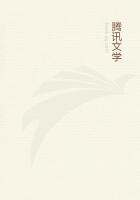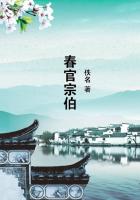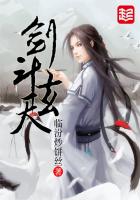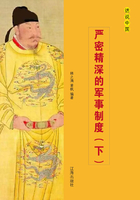From Glasgow quite a large party of the Brights and McLarens went to Edinburgh, where the Hon. Duncan McLaren gave us a warm welcome to Newington House, under the very shadow of the Salisbury crags. These and the Pentland Hills are remarkable features in the landscape as you approach this beautiful city with its mountains and castles. We passed a few charming days driving about, visiting old friends, and discussing the status of woman on both sides of the Atlantic. Here we met Elizabeth Pease Nichol and Jane and Eliza Wigham, whom I had not seen since we sat together in the World's Anti-slavery Convention, in London, in 1840. Yet I knew Mrs. Nichol at once; her strongly marked face was not readily forgotten.
I went with the family on Sunday to the Friends' meeting, where a most unusual manifestation for that decorous sect occurred. I had been told that, if I felt inclined, it would be considered quite proper for me to make some remarks, and just as I was revolving an opening sentence to a few thoughts I desired to present, a man arose in a remote part of the house and began, in a low voice, to give his testimony as to the truth that was in him. All eyes were turned toward him, when suddenly a Friend leaned over the back of the seat, seized his coat tails and jerked him down in a most emphatic manner. The poor man buried his face in his hands, and maintained a profound silence. I learned afterward that he was a bore, and the Friend in the rear thought it wise to nip him in the bud. This scene put to flight all intentions of speaking on my part lest I, too, might get outside the prescribed limits and be suppressed by force. I dined, that day, with Mrs. Nichol, at Huntly Lodge, where she has entertained in turn many of our American reformers. Her walls have echoed to the voices of Garrison, Rogers, Samuel J. May, Parker Pillsbury, Henry C. Wright, Douglass, Remond, and hosts of English philanthropists.
Though over eighty years of age, she was still awake to all questions of the hour, and generous in her hospitalities as of yore.
Mrs. Margaret Lucas, whose whole soul was in the temperance movement, escorted me from Edinburgh to Manchester, to be present at another great demonstration in the Town Hall, the finest building in that district. It had just been completed, and, with its anteroom, dining hall, and various apartments for social entertainments, was by far the most perfect hall I had seen in England. There I was entertained by Mrs. Matilda Roby, who, with her husband, gave me a most hospitable reception. She invited several friends to luncheon one day, among others Miss Lydia Becker, editor of the Suffrage Journal in that city, and the Rev. Mr. Steinthal, who had visited this country and spoken on our platform. The chief topic at the table was John Stuart Mill, his life, character, writings, and his position with reference to the political rights of women. In the evening we went to see Ristori in "Queen Elizabeth." Having seen her, many years before, in America, I was surprised to find her still so vigorous. And thus, week after week, suffrage meetings, receptions, dinners, luncheons, and theaters pleasantly alternated.
The following Sunday we heard in London a grand sermon from Moncure D. Conway, and had a pleasant interview with him and Mrs. Conway at the close of the session. Later we went spent a few days at their artistic home, filled with books, pictures, and momentos from loving friends. A billiard room, with well-worn cues, balls, and table杚uite a novel adjunct to a parsonage杕ay, in a measure, account for his vigorous sermons. A garden reception to Mr. and Mrs. Howells gave us an opportunity to see the American novelist surrounded by his English friends.
Soon after this Mr. Conway asked me to fill his pulpit. I retired Saturday night, very nervous over my sermon for the next day, and the feeling steadily increased until I reached the platform; but once there my fears were all dissipated, and I never enjoyed speaking more than on that occasion, for I had been so long oppressed with the degradation of woman under canon law and church discipline, that I had a sense of relief in pouring out my indignation. My theme was, "What has Christianity done for Woman?" and by the facts of history I showed clearly that to no form of religion was woman indebted for one impulse of *******, as all alike have taught her inferiority and subjection. No lofty virtues can emanate from such a condition.
Whatever heights of dignity and purity women have individually attained can in no way be attributed to the dogmas of their religion.
With my son Theodore, always deeply interested in my friends and public work, I called, during my stay in London, on Mrs. Grey, Miss Jessie Boucherett, and Dr. Hoggan, who had written essays for "The Woman Question in Europe"; on our American minister (Mr. Lowell), Mr. and Mrs. George W. Smalley, and many other notable men and women. By appointment we had an hour with the Hon. John Bright, at his residence on Piccadilly. As his photograph, with his fame, had reached America, his fine face and head, as well as his political opinions, were quite familiar to us. He received us with great cordiality, and manifested a clear knowledge and deep interest in regard to all American affairs. Free trade and woman suffrage formed the basis of our conversation; the literature of our respective countries and our great men and women were the lighter topics of the occasion. He was not sound in regard to the political rights of women, but it is not given to any one man to be equally clear on all questions. He voted for John Stuart Mill's amendment to the Household Suffrage Bill in 1867, but he said, "that was a personal favor to a friend, without any strong convictions as to the merits of what I considered a purely sentimental measure."















